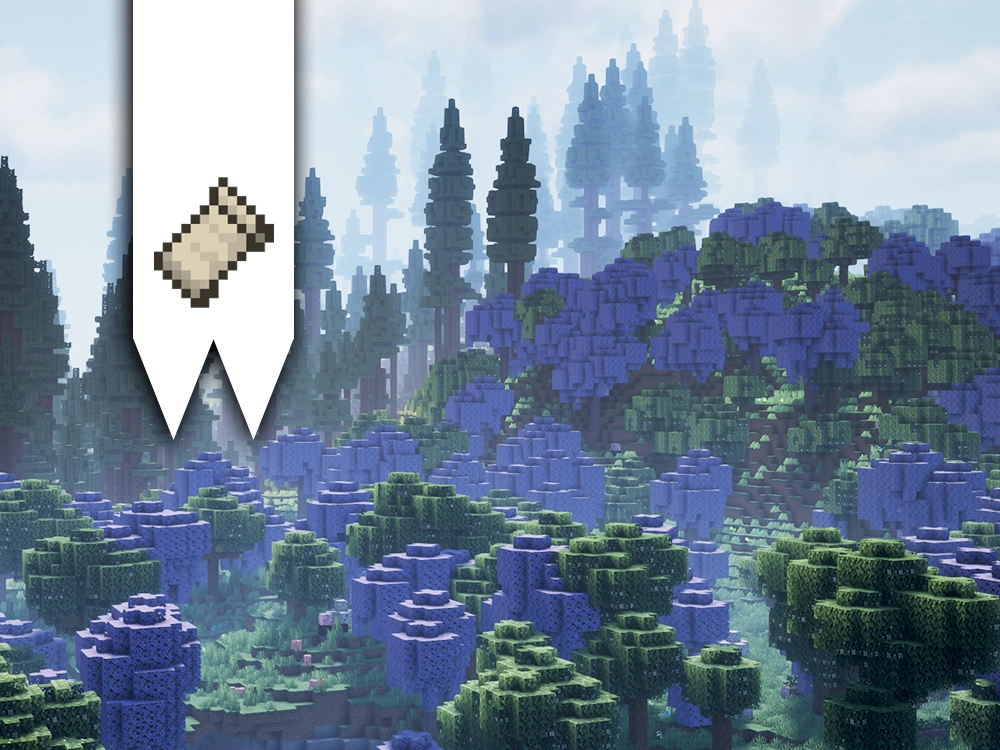Getting Started with Fabric: What You Need to Know
Minecraft Fabric Mod Loader is a lightweight, fast, and modular tool to enhance the game with mods. Perfect for optimizing client-side performance or adding mods, Fabric works seamlessly with the latest Minecraft versions and snapshots. Unlike Forge, Fabric uses fewer resources, making it ideal for players who want smoother gameplay with fewer bugs. If you’re interested in exploring Forge mods, check out our How to Install Forge Mod Loader guide for step-by-step instructions. For client-side mods in 2025, installing Fabric locally is essential to unlock its full potential.
Quick Navigation
- Step 1: Download Fabric Mod Loader
- Step 2: Install Fabric Mod Loader
- Step 3: Use Mods with Fabric in Minecraft
- Troubleshooting Fabric
- Fabric FAQs
Step 1: Download Fabric Mod Loader
In order to install the Fabric Mod Loader for Minecraft Java, we need to download the installer first. Click the button below or head over to the Fabric download page.
⚠️ Important: The installer is a
.jarfile, which requires Java 21 to run. Make sure you have Java 21 installed on your system. If you need help, check out our How to Install Java 21 guide for step-by-step instructions.
- Click “Download universal jar” this will begin the download for the installer.
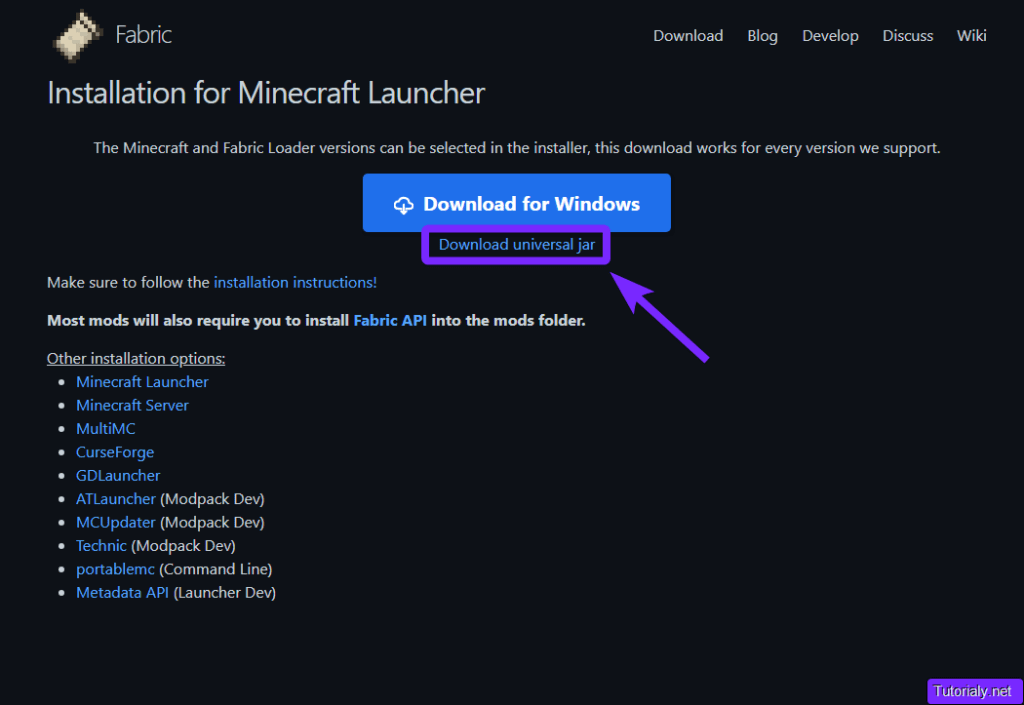
You should now see the fabric-installer.jar file in your recent downloads or the default Downloads folder on your system.

Now that the installer has downloaded, proceed to the next step to learn how to install the Fabric Mod Loader for Minecraft in 2025.
Step 2: Install Fabric Mod Loader
Now that you have the fabric-installer.jar file, you’re only a few simple clicks away from completing the setup. Here is how to install the Fabric Mod Loader for Minecraft:
- Open the file we downloaded in the previous step.
- Double-check your settings to ensure they’re correct, including the location of your Minecraft installation. Once everything looks good, click Install to continue.

- Once the installation is done, click the “OK” button.

⚠️ Important: Many Fabric mods also require you to put the Fabric API into the mods’ folder.
Congratulations! You’ve successfully installed Fabric and are now ready to enjoy Minecraft with mods. Move on to the next step to start adding mods to Minecraft Java using Fabric.
Step 3: Use Mods with Fabric in Minecraft
Now that we have installed Fabric, it is time to add mods to Minecraft Java.
- Open your Minecraft Launcher.
⚠️ Important: If Fabric was installed correctly, it should automatically be selected in your chosen Minecraft instance. Click here if Fabric does not appear in your launcher.
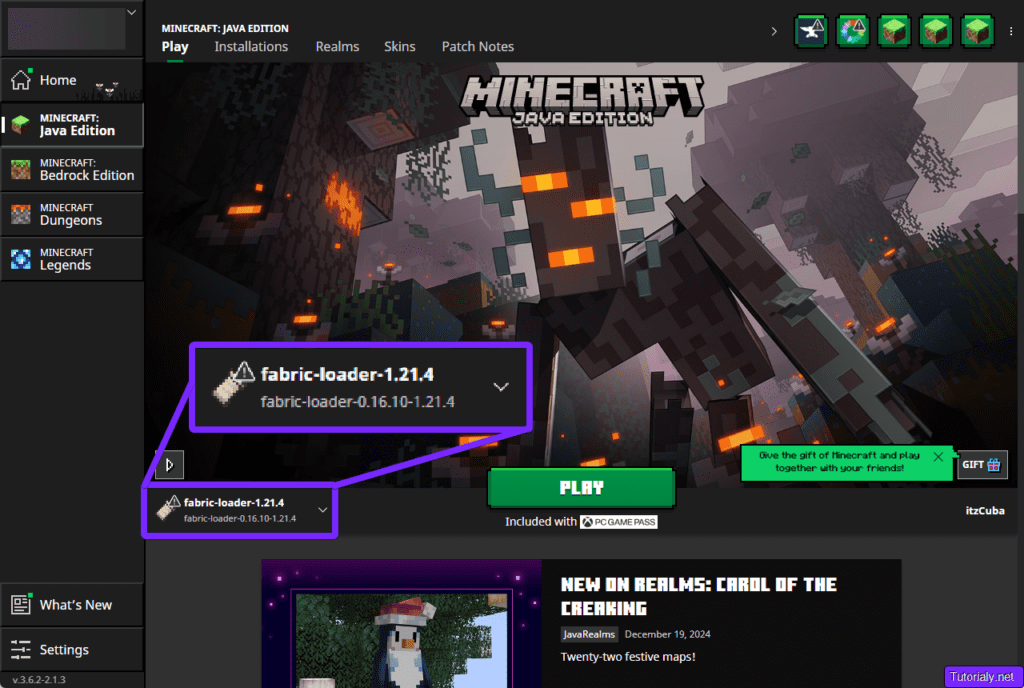
- Click on the “Installations” tab at the top of the Minecraft launcher.
- Select “Modded” to view custom game installations, including Fabric.
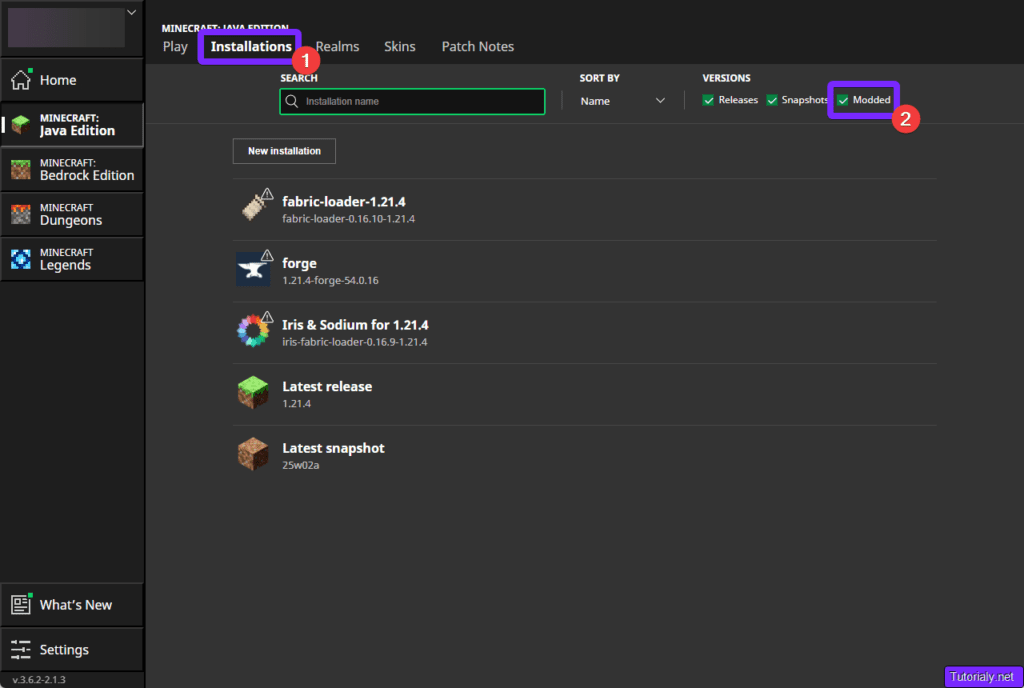
- Hover over the Fabric installation and click the folder icon to open the game’s installation directory.

- Inside the
.minecraftdirectory, create a folder and name it mods.
⚠️ Important: If a “mods” folder already exists, make sure to remove any outdated or incompatible mods to avoid issues with your new Fabric installation.

- Open the “mods” folder and add your mod files into it. Make sure the mods match the version of Fabric Mod Loader you installed.

- Close the folder, return to the Minecraft launcher, and start your Fabric instance.

- You might see a pop-up about player safety features. Read through it if you prefer, then check the box to acknowledge the risks and click “Play” to continue.

Once you’re in the game, you’re all set to start playing with mods using the Fabric Loader. If you’re unsure which mods to try, check out our article on the Top 10 Minecraft Fabric Mods for 2025 for some great recommendations!
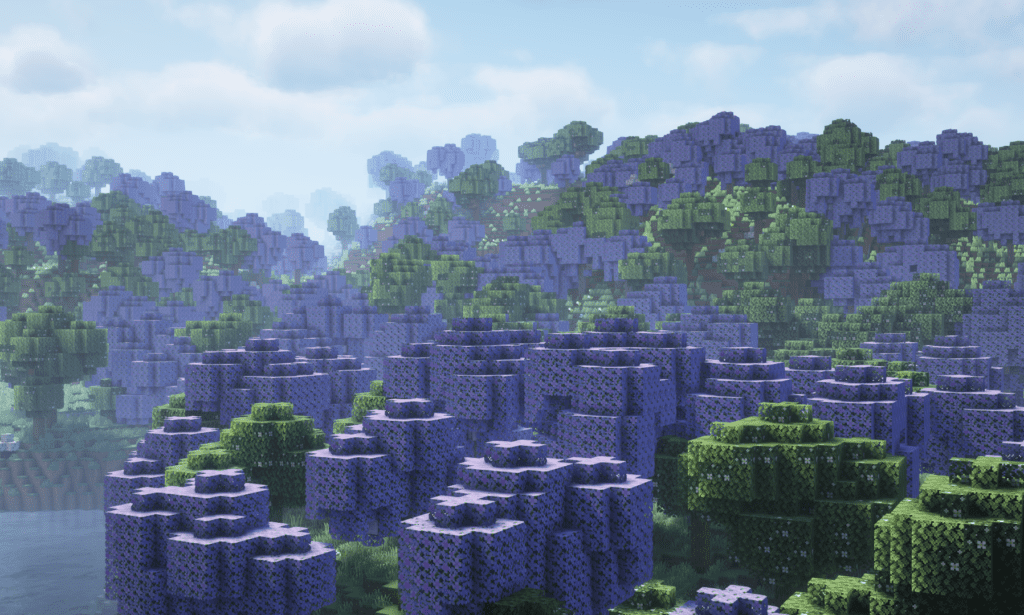
That’s it! You’ve successfully downloaded and installed the Fabric Mod Loader and are ready to use as many mods as your PC can handle. Don’t forget to enhance your gameplay with some shaders by using Iris and Sodium!
Troubleshooting Fabric
Incompatible mods found when using Fabric

This error often occurs when installing Fabric for the first time or after updating it. It’s usually caused by one or more mods being incompatible with your version of Fabric or Minecraft. Fortunately, it’s simple to fix—Fabric typically alerts you about incompatible or missing mods. Check the “mods” folder and ensure all mods match the correct versions of Fabric and Minecraft. Update or remove any outdated or incompatible mods to resolve the issue.
Game crashed “Error Exit Code:1”

The error Exit Code: 1 can have multiple causes. While it’s typically due to incompatible mods, as covered in the previous paragraph, it can also be caused by an incorrect or outdated Java version. Below are the Java requirements for each Minecraft version:
- Forge 1.20.5 and above: Requires Java 21
- Forge 1.17 to 1.20.4: Requires Java 16
- Forge 1.13 to 1.16.5: Requires Java 8 or Java 11
- Forge 1.12.2 and below: Requires Java 8
Fabric Doesn’t Show in the Launcher After Installation
If you’ve installed the Fabric Mod Loader, and it’s not appearing in your Minecraft launcher, follow these steps to fix the issue:
- Click the “Installations” tab in the top of the launcher and select “New Installation“
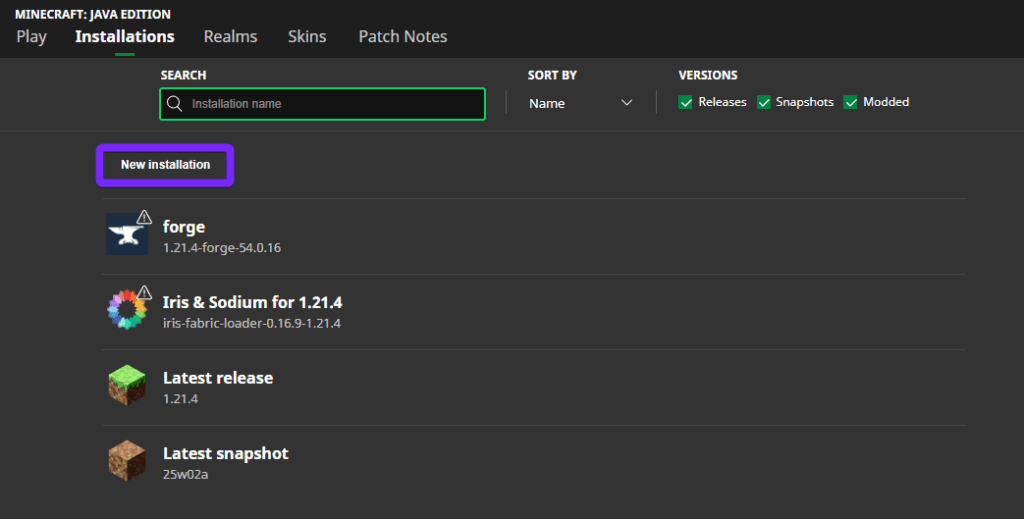
- Give the installation a name of your choice, then search for Fabric in the version dropdown. It’s typically listed as release fabric-loader-[version].

- Select the Fabric version you installed from the dropdown menu, adjust any other settings as needed, and click Install in the bottom corner to save the configuration.

Fabric should now appear in your Minecraft launcher, and you’re ready to start adding mods to your game!
Fabric FAQs
What is Fabric Minecraft?
Fabric Minecraft is a lightweight mod loader that allows you to customize and enhance your gameplay with mods. It’s optimized for performance, supports the latest Minecraft versions, and is easy to use for players and developers alike.
Is The Fabric Mod Loader Safe?
Yes, the Fabric Mod Loader is safe to use when downloaded from its official website. Always ensure that mods are sourced from trusted platforms to avoid malicious files. Using reputable tools and websites helps keep your Minecraft experience secure.
What is the difference between Fabric and Forge?
Fabric and Forge are two popular mod loaders for Minecraft, but they differ significantly in their approach and functionality:
Fabric
- Lightweight and Fast: Fabric is designed to be lightweight and modular, making it less resource-intensive than Forge.
- Performance Optimization: Many Fabric mods are created with performance in mind, improving FPS and gameplay smoothness.
- Quick Updates: Fabric updates quickly to support the latest Minecraft versions, including snapshots.
- Simplicity: It’s easier to install and set up, ideal for users who want a straightforward modding experience.
- Modern Modding: Fabric focuses on supporting newer Minecraft versions and smaller, performance-driven mods.
- Growing Community: While newer than Forge, Fabric has an active and expanding developer community.
Forge
- Extensive Mod Library: Forge has been around longer and supports a much larger selection of mods, including many complex and large-scale mods.
- Broad Compatibility: It’s compatible with older Minecraft versions, making it ideal for players using legacy mods.
- Established Community: Forge has a well-established community with long-standing developer support and a wealth of resources.
- Advanced Features: Supports intricate modding features and dependencies, suitable for complex mod packs.
- Slow but Stable Updates: Forge takes longer to update for new Minecraft versions but provides reliable support once updated.
- Resource Intensive: Forge uses more system resources, which can affect performance compared to Fabric.
Explore more Minecraft guides and tutorials here!
